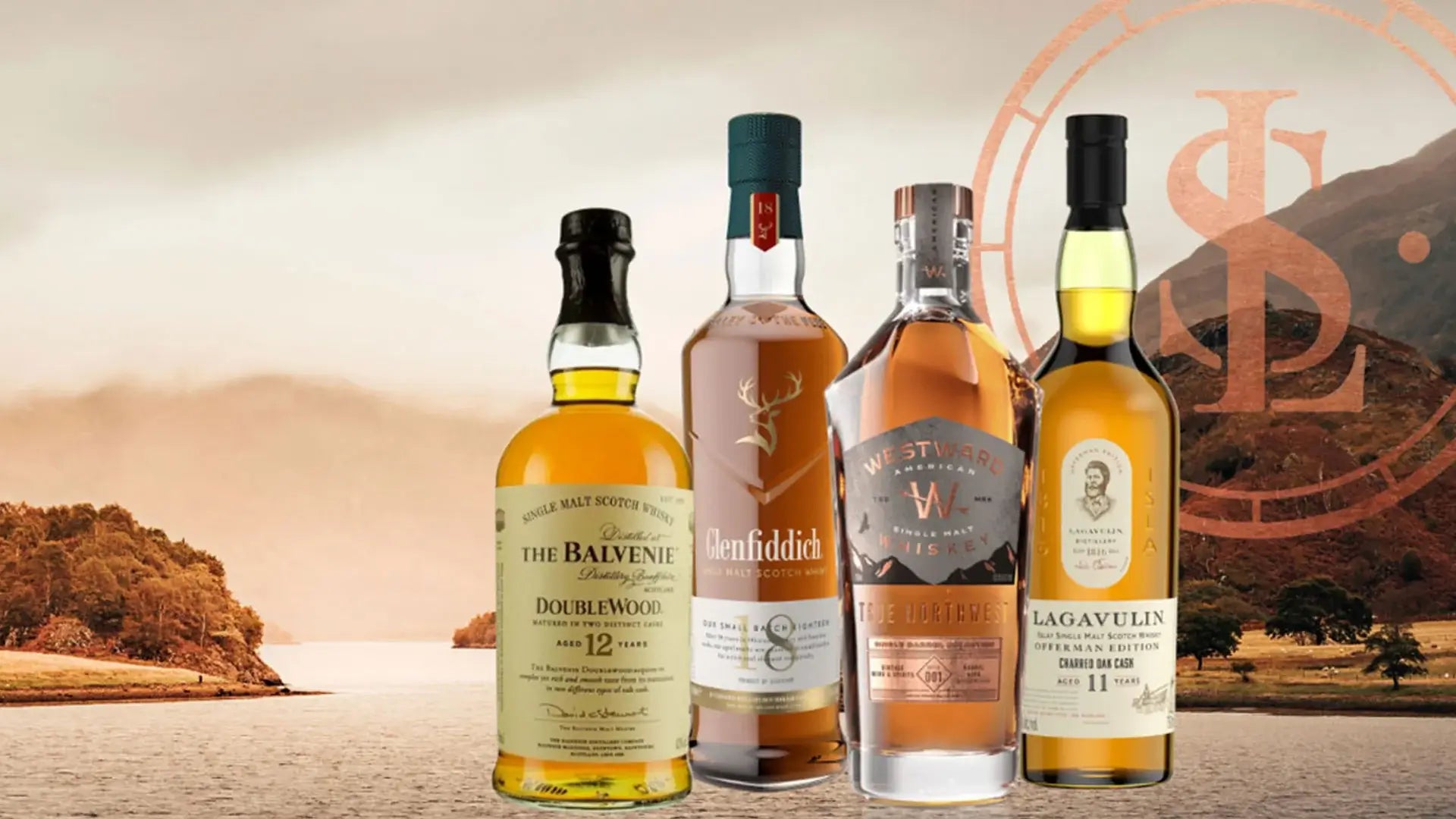Whiskey lovers often find themselves pondering the distinctions between various types of this beloved spirit. One common question is: What is the difference between Scotch and whiskey? While all Scotch is whiskey, not all whiskey is Scotch. Understanding these differences can enhance your appreciation and help you make informed choices. In this article, we'll explore the nuances of Scotch vs whiskey, including their ingredients, distillation processes, and flavor profiles.
Scotch vs Whiskey: What are the Main Differences?
The main differences between Scotch and whiskey lie in their country of origin, ingredients, production methods, and flavor profiles. Is Scotch the same as whiskey? Not exactly. Scotch is a type of whiskey that must be made in Scotland, following specific regulations. Whiskey, on the other hand, is a broad category of spirits produced worldwide, including varieties like bourbon, rye, and Irish whiskey. Let's delve deeper into these distinctions.
Scotch vs Whiskey: Ingredients, Distillation Process, and Flavor
Understanding the differences between Scotch and other whiskeys involves examining their core components: ingredients, distillation processes, and resulting flavors.
1- Ingredients

Scotch whisky is primarily made from malted barley and must be produced in Scotland. The use of malted barley gives Scotch its distinctive character. Other whiskeys, such as bourbon, are made from a mash bill that includes a mix of grains like corn, rye, wheat, and barley. For example, bourbon must contain at least 51% corn. These variations in grain composition significantly impact the flavor and texture of the final product.
2- Distillation Process

Scotch whisky is typically distilled twice in copper pot stills, which helps to concentrate the flavors and remove impurities. The spirit is then aged in oak barrels for a minimum of three years. In contrast, other whiskeys may use different distillation methods. For instance, Irish whiskey is often triple distilled for extra smoothness, and American whiskeys like bourbon are usually distilled using column stills before aging in new, charred oak barrels.
3 - Flavor Profile

Scotch whisky is known for its complex flavors, which can range from smoky and peaty to sweet and fruity, depending on the region of production. The use of peat in drying the malted barley imparts a smoky aroma and taste, particularly in Scotch from Islay. Other whiskeys offer different flavor experiences. Bourbon, with its high corn content, tends to be sweeter with notes of caramel and vanilla. Rye whiskey is spicier, featuring hints of pepper and baking spices.
Is Scotch Better than Whiskey?

Determining whether Scotch is better than whiskey is subjective and depends on personal taste preferences. Scotch offers a unique experience with its diverse flavor profiles influenced by Scotland's regions. If you enjoy smoky, peaty flavors or complex, layered spirits, you might prefer Scotch. However, if you favor sweeter or spicier notes, other whiskeys like bourbon or rye might be more appealing. Ultimately, both Scotch and other whiskeys have their own merits, and exploring different types can be a rewarding journey for any whiskey enthusiast.
Is it Whisky or Whiskey?
The spelling of "whisky" versus "whiskey" often confuses people. The difference primarily stems from geographic traditions. In Scotland and Canada, it's spelled "whisky", without the "e." In the United States and Ireland, it's spelled "whiskey", with the "e." This distinction helps indicate the origin of the spirit. So, Scotch is always referred to as "whisky," while American and Irish spirits are "whiskey." Despite the spelling differences, both terms refer to spirits distilled from fermented grain mash.
Is Scotch Stronger than Whiskey?

The strength of Scotch compared to other whiskeys varies and is not inherently higher or lower. Both Scotch and other whiskeys typically have an alcohol by volume (ABV) of around 40% (80 proof), though this can range higher for certain expressions or cask-strength bottlings. The perception of strength often comes from the flavor profile rather than the alcohol content. Scotch may taste stronger due to its smoky or peaty notes, while a sweeter bourbon might feel smoother, even at the same ABV.
What Makes Scotch Whisky Unique?
Scotch whisky's uniqueness comes from its strict production regulations, regional influences, and traditional methods. By law, Scotch must be distilled and matured in Scotland using specific techniques. The use of malted barley, the influence of peat smoke, and the aging process in oak casks (often previously used for sherry or bourbon) contribute to its distinctive flavors. Additionally, the climate in Scotland affects the maturation process, adding to Scotch's complex character that whisky lovers around the world cherish.
Frequently Asked Questions
What is whiskey?
Whiskey is a distilled alcoholic beverage made from fermented grain mash. Grains used include barley, corn, rye, and wheat. Whiskey is produced worldwide and comes in various types, such as bourbon, rye, Irish whiskey, and Scotch whisky. The production methods, ingredients, and aging processes vary, resulting in a wide range of flavors and styles.
Is every whiskey a Scotch?
No, not every whiskey is a Scotch. Scotch is a specific type of whisky that must be made in Scotland following strict regulations. While all Scotch is whisky, not all whisky is Scotch. Other countries produce their own styles of whiskey with different ingredients and methods, such as bourbon in the United States and Irish whiskey in Ireland.
Which is better: Scotch or bourbon?
Whether Scotch or bourbon is better is a matter of personal preference. Scotch offers a range of flavors from smoky and peaty to sweet and fruity, depending on its region of origin. Bourbon is generally sweeter, with notes of caramel and vanilla due to its high corn content and aging in new, charred oak barrels. Exploring both can help you determine which suits your taste best.















